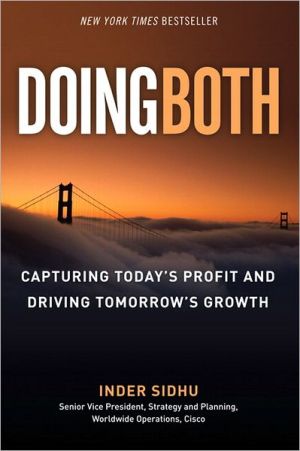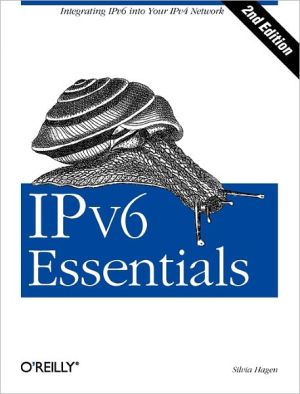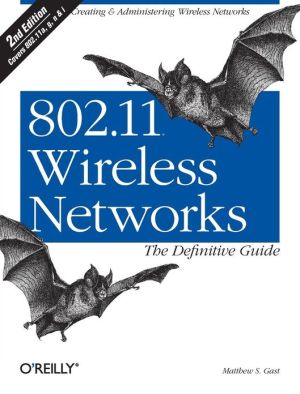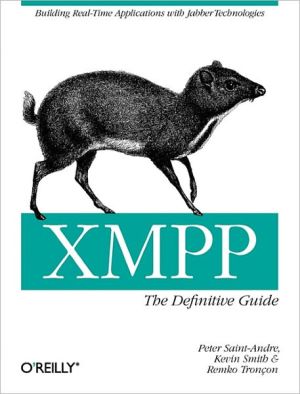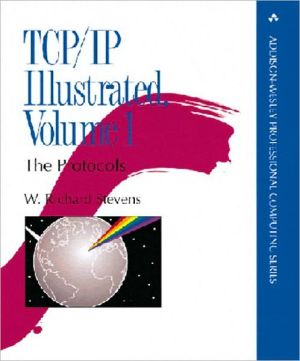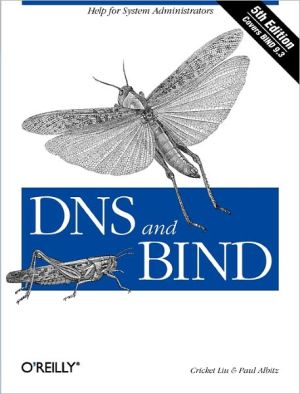Computer Telephony Encyclopedia
If you want to grasp the full length and breadth of the rapidly developing computer telephony field, this book is the place to start. Author Richard Grigonis thoroughly explains even the most abstruse ideas in a concise manner that is aimed at all kinds of readers -- students, business executives, telecom managers, call center supervisors or entrepreneurial developers. Each encyclopedia entry is both an adroit explanation of computer telephony technology and a buyer's guide-like discussion of...
Search in google:
Computer telephony represents the convergence of telephone systems with computers and data networks. It spans a vast range of equipment, technology, and services - far beyond the boundaries of any one technical discipline. This book provides an all-in-one resource for any professional involved in this burgeoning field. Hundreds of different topics are examined thoroughly, with practical and easy-to-understand explanations of their use and significance, and how they relate to other technologies. In its essence, computer telephony is the adding of computer intelligence to the making, receiving, and managing of telephone calls. This book covers a broad range of applications, as well as the core technologies that support special services, such as voice recognition, digital signal processing, broadband networks, and IP telephony.
"First, instead of 'computer,' I'd say 'computer and communication,' because unless a computer is linked to something, it really doesn't do much:' - lames Burke, author, science historian and producer of such insightful television documentaries on technological history as Connections, Connections 2, and The Day the Universe Changed\ The above quote from James Burke is particularly apt, serving to evoke the most primitive underlying idea of computer telephony - that computation and communications can both be brought into a close, synergistic relationship. Burke's quote also reflects in microcosm his whole philosophy that the history of science and technology is a "web" of disparate, though linked events (he used the term "web" nearly 15 years before the World Wide Web appeared). It's across the length and breadth of this web where unlikely causal chains of serendipitous discoveries and chance occurrences form and ultimately lead to modern inventions such as the ball point pen, the combustion engine, and even the computer itself.\ Indeed, Burke's unique tangled, yet slap-dash, almost picaresque version of history reminds me of the convoluted path that led me to the computer telephony industry in general and the magazine Computer Telephony in particular.\ If I were a James Burke attempting to tell this wildly improbable tale, I'd begin by making the deliberately provocative statement that it was really the invention of word processing that was responsible for my career in computer telephony, the success of CT magazine, and the production of the encyclopedia you are now reading.\ Ah, but we are already getting ahead of ourselves.\ My first love was physics and engineering, but in the early 1970s Japan was amusing itself by sending "CARE" packages to U.S. aerospace engineers in the Pacific Northwest. While in college (what is now Rowan University in New Jersey) I began to take blocks of courses in various random areas that had no significance or connectedness other than that they caught my fancy: Cultural and physical anthropology, archaeology, art history, film theory, magazine layout and design, Indians of North America, astronomy, Magic and Religion of Primitive Tribal cultures, the medieval world, mesoamerican Pre-Columbian cultures, comparative religiort, linguistics, the theory of general semantics, etc.\ Watergate had just occurred, and, in the wake of the book All the President's Men and the movie of the same name, journalism students seemed to be budding celebrities - at least, they were getting all the girls! So 1 found myself graduating with a degree in Communications (the journalism track) and a sort of minor in art history.\ It was just as well, as I always had a strong interest in writing. As a child I scrawled and drew illustrations for my first book (done on the back of fanfold paper, like some enormous Mayan t , codex), which I proudly presented to my second grade teacher, Mrs. Johnson, and plopped it on her desk. Upon returning to my seat, I turned around to see it protruding from her wastepaper basket I ran back up the classroom aisle, retrieved the wad of paper and plunked it down again in front of her, urging: "But you don't understand, Mrs. Johnson, this is for you to read!" You see, long before it became fashionable to deride American education; I already knew from an early age that educators didn't know what they were doing (or talking about) most of the time, and so I tried to set poor Mrs. Johnson straight as to what to do with the magnum opus I had just bestowed upon her. Mrs. Johnson to her credit thanked me for my clarification of the matter and slid the pile into her desk drawer, never to be seen again.\ During my college experience I had ignored the campus newspaper but had a strong interest in the campus information and humor magazine, called Venue. It was there in 1977 that I hatched my first plot to start a magazine with my collegiate cohorts. One tiny problem was the $100,000 necessary to get started in those days (today one would need closer to $4 million). After everything was typeset and the artwork was produced, the tiny problem over financing became an enormous problem. In almost no time at all, the proverbial cookie had crumbled.\ Undaunted upon my graduation from college I set out like some naive Candide to make my fortune in New York City. Little did I or anyone else realize at the time that my lot was in many ways similar to that of dear old Mrs Johnson back in elementary school: The highest unemployment rates during the 1980s were to be among journalists and teachers.\ After living on a diet of fish sticks and Kool Aid for a month or so, I could very easily have lapsed into a frustrated career as an anonymous security guard But as in the case of any would be security guard who could type at 114 words a minute, I became the next best thing - an anonymous word processor operator! Fortunately, the system I worked with was the Wang VS100, with its 32-bit processor, 16 MB of RAM, 14 inch diameter external disk drives and dual I/0 bus architecture, and which was also capable of performing data processing functions. Dr. An Wang's device opened up an interesting new (and more lucrative) world for me.\ After an almost ludicrously varied career, by 1994 I had become the first Management Information Services (MIS) director in the history of Squadron, Ellenoff, Plesent & Scheinfeld, the prestigious New York law firm, perhaps best known as the attorneys representing much of the business of media baron Rupert Murdoch and his News America Corp. (I sometimes joke that my greatest claim to fame was showing Murdoch the location of the Men's room during the "glory day" of his repurchase of the New York Post from the overly-flamboyant parking lot tycoon, Abe Hirschfeld).\ It was at this point (around September of 1994) that 1 saw a small advertisement in the "Want Ad" section of the New York Times. Computer Telephony magazine was looking for a new writer / editor.\ I had received the first test issue of Computer Telephony a short time before, in the Fall of 1993. Its contents had spurred me to proclaim to our firm that what they needed was a "unified messaging system." As few people knew what a unified messaging system was at the time, the statement was greeted by the staff with some mumbling and a lot of blank stares.\ Now I was sitting there in my office, newspaper in hand, remembering my ancient ambition of starting a magazine. But Computer Telephony didn't look or read like any computer or telecom magazine I had ever seen. It was designed like Business Week, but read more like Spy. I knew vaguely of Computer Telephony magazine's publisher and editor-in-chief, Harry Newton, who had founded LAN magazine in the 1980s and had sold it for millions of dollars to Miller Freeman (now CMP Media). I also knew that he published Newton's Telecom Dictionary, which can be found on the desk of literally every company's telecom manager as well as everyone in the telecommunications industry.\ A strange impulse suddenly came over me. I commented to members of the staff that "if all else fails, I guess I could always work for this magazine - look here, why don't I send them a letter!" I decided to have a bit of mischievous fun. I fired up Microsoft Word and jokingly dashed off a letter to Harry Newton which I carefully made sure violated every tenet of good business letter writing. It read something like this:\ "Dear Sir, I was recently waiting at the Port Authority Bus Terminal here in New York, ready to leave the big city for my new job tending a miniature,golf course on the boardwalk of Atlantic City, when I had the urge to pick up and read a copy of my beloved New York Times for one last time. In it I saw your insignificant, postage stamp-size advertisement for a writer. Enclosed are some articles I wrote for Dr. Dobb's Journal over ten years ago. I think I may be a serial killer, but I'm sure that won't be an obstacle in getting a job with you, since I work cheap. Hope to be hearing from you."\ Before mailing the letter out, I passed it around among my compatriots at the law firm and we all had a good laugh. One person said: "You're nuts. And if this guy actually responds to this letter, he's probably nuts too, so you two would get along just fine." There is, as they say, much truth in jest.\ I mailed the letter with a resume and old, fading photocopies of some articles I had written years before, and then promptly forgot about the whole affair.\ Several days later, while loading Windows NT 3.1 Workstation on a brand spanking new 66 MHz Treasure Chest tower PC with 16 MB of RAM, the phone rang. I picked it up. Some guy with an Australian accent was at the other end of the line.\ "You haven't taken that job yet with the miniature golf course, have you?" he quizzed.\ "Huh?" I answered.\ "And you haven't killed anybody lately, have you?" After a few moments of confusion, I suddenly realized that this call was about my letter!\ The fellow suddenly became more serious: "Can you come down here to our offices on Twenty-First Street at five o'clock?"\ "Sure, why not?" I replied, thinking that nothing was going to come of any of this, since I had no real experience in the trade publishing industry.\ "All right," he said, "Just ask for Harry Newton. See you later."\ Before leaving for the offices of Newton's principal company, Telecom Library, I ran a Dun & Bradstreet analysis of his organization. It appeared to be a rapidly growing company that published magazines and books, and held an annual trade exposition in Dallas, Texas.\ A few hours later I found myself in a building that at the turn of the 20th century had served as a sweatshop. I was soon ushered into the office of one Harry Newton, publisher and telecom deal-maker extraordinaire.\ Harry started off by giving me what I was soon to learn was his standard speech on why computer telephony technology was so important It included his now-famous line: "Look at this phone, it doesn't even have a backspace key!" I dutifully noted his Mitel SX-2000 phone system.\ Harry's oration soon reached a crescendo: "I'm telling you young man, computer telephony is going to be the hottest industry ever! To work here would be your golden opportunity."\ After he was finished with a spirited tirade against overly successful PBX manufacturers, stupid Nynex executives and the staid telecom industry in general, l summoned enough courage to say something: "I don't understand why on Earth you've called me in here. My only publishing experience consists of doing a collegiate humor magazine, and once when I was a temp I typed some royalty statements at Random House."\ "Nonsense!" exclaimed Newton. "You're perfect for this job. You've published articles and you know computers. I can tell about these things."\ Indeed he could. Part of the secret to Harry's success was a near sixth sense that allowed him to instantly size people up. It was a sort of inner divining rod that could zero in on the many talented or even brilliant people out there in the corporate world who were sequestered in minor jobs for one reason or another, never getting their "big break" because of some personal imperfection or peculiarity.\ Studies going back as far as the 1960s indicate that an amazing number employees stay at the bottom of the corporate ladder or get fired simply because their employers just don't like them. Well, Harry Newton made several fortunes by hiring people he didn't like.\ Like some kind of magazine industry version of movie producer Roger Corman, Harry Newton could recognize the bankable talent lurking in unknown wannabe artists, poets, stymied great American novelists, undiscovered screenwriters, frustrated stand-up comics, and a multitude of other 'on-corporate animals" who continually migrate to the concrete jungle of New York City and trudge up and down its boulevards of broken dreams. Newton could look beyond the personal foibles of any would-be employee and determine in a flash whether the person had any hidden aptitude that could be exploited for a modest salary.\ The word "foible," aside from meaning a minor weakness or failing of character, can also refer to "the weaker section of a sword blade, from the middle to the tip." Perhaps that's a fair description of my foible, as one of my professors in college would repeatedly (and sternly) cite to me Alexander Pope's remark that "sarcasm is a sword, not a club."\ Of course, I had had 16 years to mellow (or perhaps I should say "simmer's from the time I graduated college until my fateful encounter with Mr. Newton.\ That's not to say that the brilliant and charismatic though complicated Newton didn't have some considerable personal foibles of his own. Still, for all his outrageous, exasperating set of eccentricities, there were certain qualities in Newton which at times affected, and in some cases seemed well-nigh to completely overshadow all the rest After one particularly successful Expo, for example, Harry was approached by an old acquaintance in financial need, a fellow who had taught him photography 20 years before. Harry immediately wrote out a check for $25,000 and gave it to him as a long-term loan. And when editor Rick Luhmann had his golf clubs stolen while moving to a new apartment, Harry, a long-time, near-pro tennis enthusiast, remarked that stealing someone else's sporting goods was a terrible thing to do, and promptly bought the fellow a new set of clubs.\ In any case, it appeared that Newton and I had hit it off. We joked about attorneys, Bell Labs, New York, Harvard, middle age, and how many frozen TV dinners I managed to fit into my kitchen's freezer.\ Shifting once more back into interview mode, Harry coyly remarked that "I don't know if were going to hire you . . . but if we did, could you start immediately?"\ "Well, l would like to walk around and see your operation," I replied. "You know, talk with some employees."\ "Certainly," Harry said. He picked up the phone, punched in an extension and intoned "Hello, this is Harry. I'm sending down somebody to talk to you. He's thinking of working for us, and I want you to tell him how wonderful it is to work for me, do you understand?"\ No doubt I was going to get a perfectly candid tour of Newton's little empire.\ As the reader has probably determined by now, in one of those preposterous happenstances which sometimes serves Fate in good stead, I ultimately chucked my so-called computer career and took the job with the magazine. Why I did so is open to conjecture. Logically, I figured that I would get more "exposure" as a magazine writer (soon to be technical editor) than as a law firm's MIS, IS or IT Director. But illogically, it was that overly romantic, almost vanished dream of working on a magazine that "swung the ball" as it were.\ I immediately learned, much to my surprise, that CT editor Rick Luhmann had almost single-handedly written the bimonthly throughout 1994, and the addition of myself to "the staff" was to ensure that the magazine could now become a monthly, starting in January of 1995! Needless to say, I realized that out of necessity I would soon have to become a prolific author. I went home with a copy of every book Newton's company published, immersing myself in this new world that was an amalgam of telecom and computer technologies.\ But nothing could have prepared me for the whirlwind I would ride right up until the present day. In March of 1995, for example, I experienced my first "CT Expo" in Dallas, meeting many of the both hopeful start-ups and entrenched telecom play...

